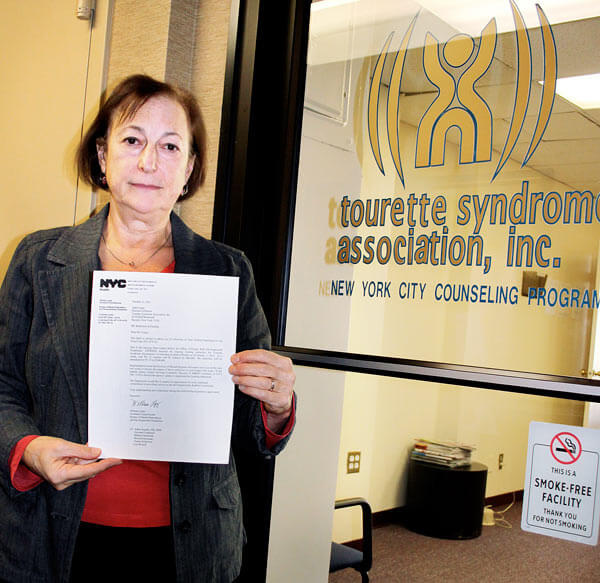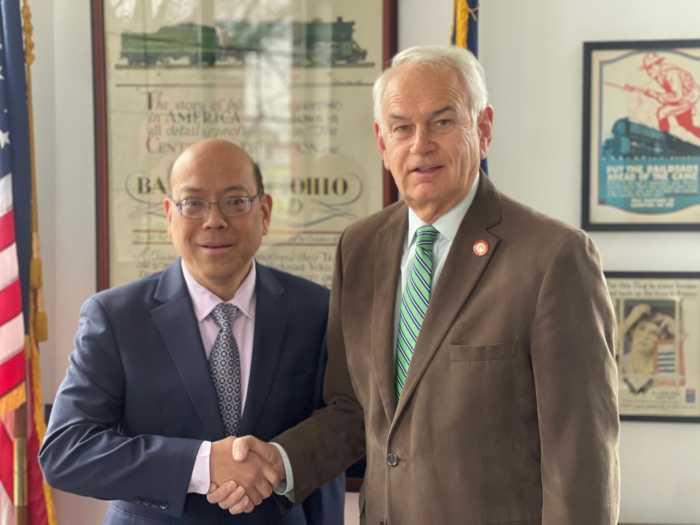By Rich Bockmann
A unique resource for people living with Tourette syndrome and their families is planning to close its doors in Bayside early next year, leaving the community searching for alternatives to the counseling services it has provided for nearly three decades.
The Tourette Syndrome Association’s New York City Counseling Program provides individual and group counseling at its office on Bell Boulevard — as well as another in Brooklyn — but officials said they were notified last week of debilitating funding cuts from the state that will force the program to shutter both offices at the end of January.
“This program is the only one of its kind, let alone in New York,” said spokeswoman Tracy Colletti-Flynn.
“We just received the letter yesterday. With only two months, there’s not too much time to save it,” Colletti-Flynn said Nov. 3. “We’re always hopeful something may change, but at this point … we’re not too hopeful.”
Licensed clinical social workers at NYCCP currently provide individual and group counseling to about 100 children, teenagers and adults at the Bayside office.
Specialized counselors help patients to learn about and cope with the neurological disorder, which affects more than 200,000 Americans and manifests itself in symptoms such as incontrollable vocal sounds and physical movements, known as tics.
Cheryl Tellis and her son, Marques Seme, have been attending counseling sessions at the NYCCP since Marques was diagnosed with TS around the age of 7.
“It was beneficial for him to go every week. The individual counseling was so-so. It was hard to get him to open up to a group, but once he did it was absolutely awesome,” she said. “He got to see he wasn’t the only person living with TS. You think you’re the only person in the world with this awkward disease.”
Tellis said counselors were able to help her son, now 15, accept his disorder and, through identifying patterns, enable him to reverse his negative habits.
“They were able to help him come to terms with his TS. When you become more comfortable, the frustration goes away. Frustration just intensifies the symptoms,” she explained.
“They taught him that his tics come in patterns, and once he saw the first one he could be aware the second and third are coming,” Tellis said. “They helped him to not control, but to better manage them.”
In fact, Marques, has become so comfortable with his TS that he shared his experiences with the disorder in a Discovery Channel program.
Tellis also goes for weekly counseling sessions, helping other families cope with the disorder.
“I joined the family counseling group and heard from a lot of different adults,” she said. “I told them about what we went through in the past so they could follow along with what most likely will happen.”
The Flushing resident said she was not sure where they would go after NYCCP closes its doors.
“He goes to a medical doctor for medication for his symptoms, but not for counseling. There are a lot of counseling groups out there, but none with the full understanding of Tourette syndrome,” she said.
Reach reporter Rich Bockmann by e-mail at rbockmann@cnglocal.com or by phone at 718-260-4574.


































